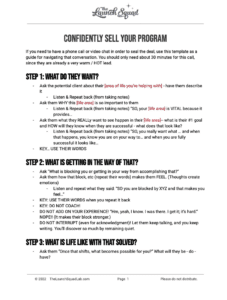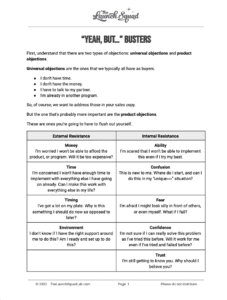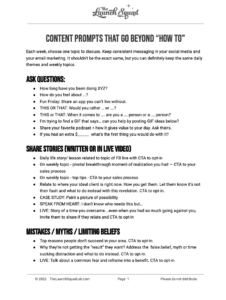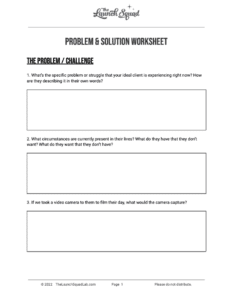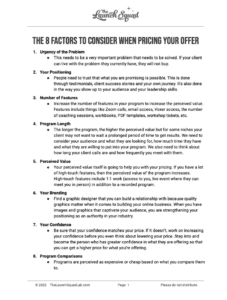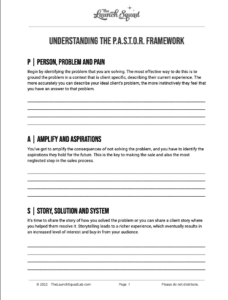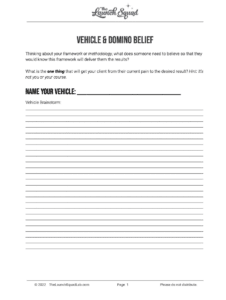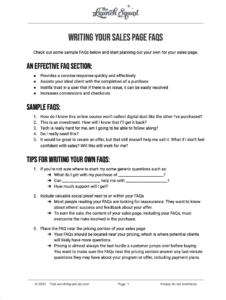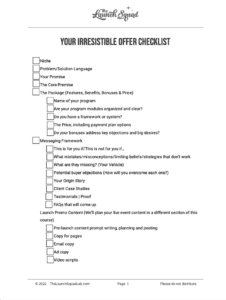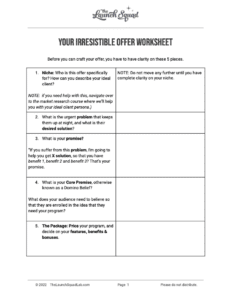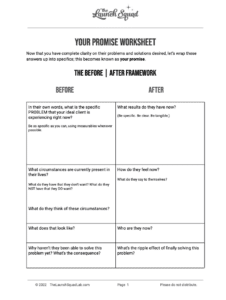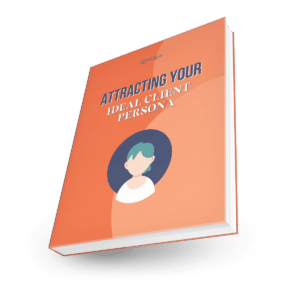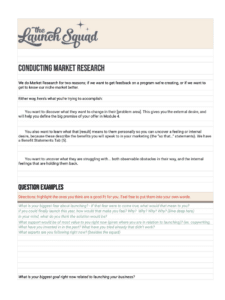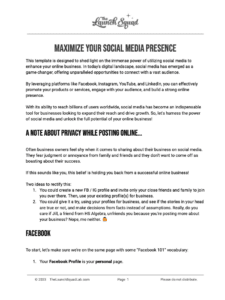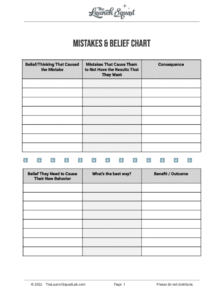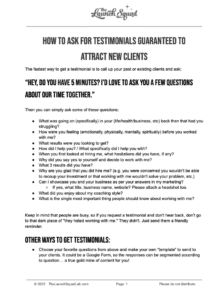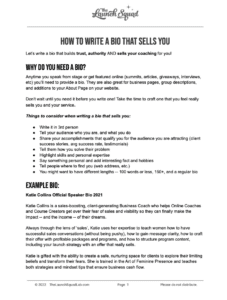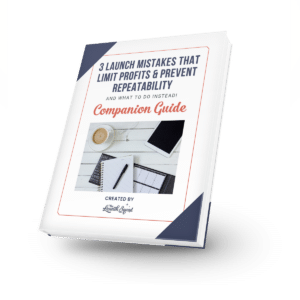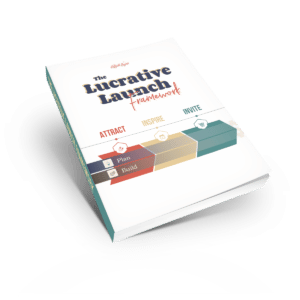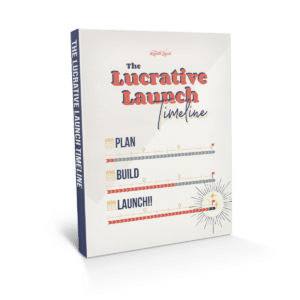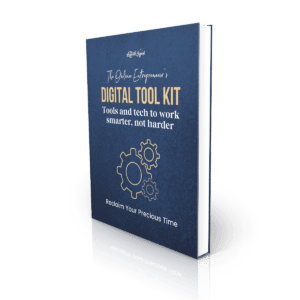Jeffrey: Welcome to the light and your launch podcast today, we're talking about harnessing the power of your cycle to reclaim your time and energy. So stay tuned.
Jeffrey: Welcome back to the show. I'm Jeffrey and I'm here today with Aliyah Swan. And today we want to talk about ways to balance your work with your cycle to become more productive and make a bigger impact while experiencing less burnout.
Our guest today is a full-time mom of three, who dreams of living a life a little differently after feeling the real pressures of entrepreneurship, the checking off of more tasks, doing more, staying busy and pushing yourself further. Every day, she ended up feeling like monster mom.
Maybe some of you can relate this. Isn't what she envisioned when starting her. Those who came before her, the successful elite showing how they achieve the four hour work week explained how to follow their path to success. But for some reason, those productivity frameworks simply don't fit a busy mom's chaotic life.
She wanted space, peace, amidst the chaos, stillness, rest, passion, and purpose. And she knew that following their path to success, wasn't going to get. Today, our guest is on a mission to help women optimize their time and energy by unlocking the power of their cycles to work with their cycle. Not against it.
Through her unique method. She helps women balance the demands of life while making a bigger impact and getting better results without adding more stress. She's the host of cycle advantage podcast. Please welcome Renee.
Ranae: Hello, thank You That was probably the best introduction I've ever had. So thank you. I appreciate that.
Jeffrey: You got a lot to work with. You got a lot dorks worth
Ranae: So, but yeah, I'm super excited to be here and I'm glad to be here. Thanks for having me.
Aleyah: hello?
Jeffrey: wait to dive in. So just tell us, tell us a little bit about how you got into this space and what your journey was like.
Ranae: Yeah, so really happenstance. It was not something I was intending at all. I started. Probably about five years ago doing an MLM network marketing company. And as a part of that joined a mastermind and they had a guest speaker in there that was kind of talking about how your cycles impact your life and your rhythms and things like that.
And so I started using it back then five or six years ago, but it was very. Behind the scenes. It was not something I talked about was not something I was really readily sharing. It was just something I was personally noticing and doing in my own life. And then over the years, I started to notice some of the clients that I had, I would share some of what I was doing and it blew them away.
They were always like. oh my gosh, this gives me so much more permission. This just gives me so much more space and they just loved it. And so I started testing it out with my audience and saying like, do you really want to hear about this more? And everybody was like, why has nobody ever talked to us about this?
Why do we not know this as women? We need to know this. And so that's where the journey slowly has transitioned into that is now my mission is helping more women. Learn this because so many women are sitting there saying like, why are we never taught this? I need to know this. So that was a little bit of my journey. Um,
really just feeling like everything in my launching life, my, my business life has kind of led up until this transition. So yeah.
Jeffrey: that's awesome. I got one question. And then I'll primarily hand this over to a lady. Who's probably more qualified to ask questions than I am, but I'm curious, like w why is it different? Uh, w why, why doesn't, How do I say this? how it, there there's two different productivity, ways of being productive.
I don't even know how to ask that question. That was horrible,
but there's two D two different ways of being productive, like a man's way and a woman's way, or, uh, a type, a type B or a, like, why is this different?
Ranae: well, I think the core piece of it kind of goes back to looking at just like biologically, how men and women are different. Right. And I will admit I've like, never, I don't know if we talked about this but like I've never read the book. Men are from Mars. Women are from the. But I do think that that kind of idea that we are very different? is that the core piece of that.
And so for men, we ha you have testosterone and testosterone is usually much higher in the morning than in the evening. And it has this waxes and wanes. Feeling throughout the day. And then you go to bed at night and you wake up the next morning and you get a fresh new dose of testosterone. And so looking at your calendar, you know, your Monday has the same sort of rhythm and the same sort of energy and productivity and focus and all that is Friday.
And it's the same as you know, the day, one of the month is day 30 of the month, but women are much different. So with, to estrogen and progesterone, They have much different feelings, right? So estrogen is the hormone. That's more predominant in the beginning of the month and it has kind of a slow ramp up to where they would obviate.
And then once they ovulate progesterone kicks in. And so astrogen has this feeling of, you know, feeling really productive and feeling really focused and brain clarity and lots of ideas. And then when progesterone kicks in progesterone has. Let's nest. Let's get prepared for a baby kind of feeling. And so they're very different feelings throughout the month.
So for women. Monday today looks very different than next Monday because there your hormones are completely different. And so those, those ideas of productivity that you called, like masculine, they're not inherently bad, they just don't work the same for women. So a woman can't look at Monday next week and say, oh, I'm going to feel really great.
I'm going to want to do all of these live training. If she gets there and her body is saying it's time to turn inward and relax and refresh, and then she's forcing herself to do all of these live trainings because they're on the calendar. It's kind of working in opposition with where her body's at. So that's kind of the idea of like two different ways.
It's like men, they don't have any fluctuation there, you know, day one. Not the same as day 30 versus woman day. One looks very different than day 30 for her. And so kind of taking that into account when planning out your calendar, planning out your tasks, it's it makes a very big difference.
Jeffrey: Hmm. Interesting. Very interesting.
Aleyah: Yeah, this is so huge. I wish we could just restructure our entire work world
Ranae: Yeah. And, you know, as business owners, that's where my mission is really helping business owners craft their own businesses around that. But I hope to see someday in like the corporate world, that there is a lot more understanding of this. And, you know, there are more businesses going to a four day work week or more flexible work schedules and things like that.
And I think that they're beginning to understand that people don't work in a straight nine to five sort of way. Even, even as women. we do have ups and downs throughout the day, too. So you have high. Points of energy, that you are ability to focus and things, and then other points in the day when your attention and your focus is not there.
And so I think more and more companies are recognizing that we are not robots and we don't function at the same level all of the time, but I would really love to see a bit more of this embracing the feminine. And I think as more. Women step into those CEO roles and have their own business structure.
And we get this message to them that we'll start to see more businesses accommodate for that.
Aleyah: I sure hope so. I mean, I have never worked in the corporate world, but I've known so many people who have, and it just having to push yourself and like that pushing energy is so bad for, for women. I think at least if you're trying to push at the time when you're supposed to be resting, you know, it seems like that's when people feel so frazzled the emotion, you know, the emotional roller coaster and it's exhaustion and burnout or.
Ranae: Yeah. Yeah. And that's, I think that's a big part of why that feeling gets there. I mean, I'm sure men and men are probably the same way that there's moments when you feel overwhelmed and exhausted and you're pushing in your business. But for women, what I find is that. You know, there are those really big peak times when you have lots of momentum and you have lots of motivation and you feel on fire and you feel ready to take on the world with your business.
And then two weeks later you feel like you want to burn the whole thing down and you don't want to touch it. You don't want to be there. You feel like you're not showing up. Business owner, mom, you know, friend, spouse, anything you feel like the world is caving in. And those patterns are pretty predictable and pretty normal.
And so when you know them and you can operate with them rather than trying to force yourself to do something when it's not in that gray zone is huge.
Aleyah: Well, when you start working with an individual on this, what are your first steps? You know, cause a lot of women don't even know their side.
Ranae: yeah.
So that is the step one is, is kind of learning your cycle and be tapping into that awareness. Right. And I think as society we've been so out of touch with what our own body is telling us that we need to do, and what's good for us in our body, because all the experts tell us that there's this one right way to do something.
But every expert has their own right way. Right? Like, so every expert has their own right way and there's a million people out there. And so we've kind of learned to disengage from our bodies. And even particularly when we look at our cycle, historically, there's a lot of shame and there's a lot of stigma and there around it.
And so what I find with my clients, there's a lot of like hush, hush. We don't talk about that. We, we pretend like it doesn't have. It's one point in our cycle, like it's four days or seven days or whatever it might be of our month that we wish we never had to experience. And if we could do away with it, we would.
And so I think historically, there's this lie. Shame and stigma around even talking about it. And so the more women are ignoring it, not listening to it, not paying attention to that. And so that is the first step is just starting to listen to your body. And your cycle is more than just that four to seven days, right?
Like looking at that estrogen and progesterone. You have your body's doing things throughout the entire month. We, we don't know about it, but it's changing so much throughout the entire month. And so we can't just look at our cycle is at four days, we want to look at it as how is our body and brain and energy changing and shifting throughout the entire month.
What is, what are those thoughts and those feelings and how is it shifting so that we begin to track that and become aware of that there are predictable patterns, right? Like most of us go through the same sort of four phases. Throughout the month, but we all have some variation. We all have some changes and uniquenesses that makes us unique.
And so looking at that and tracking that is definitely the first step and kind of crafting that story, learning to understand what are those beliefs and those thoughts that society or your family or your own experiences have done to shape the way you look at your body and your cycle today.
Aleyah: w I know this is kind of a funny story, but Jeffrey is the one who talked me into getting the clue app. Have you heard of that? When, um, I saw it was one of my questions for you today was definitely if you have any of the tracking. Cycle tracking apps that you recommend, but he actually got that first, cause I am not technologically oriented as we already discussed before the podcast.
And I was like, what an app? I don't want to use that for my cycle. But he was like, well, I need to know what the heck is happening with you. Cause you change so dramatically. And so he had the app for a year or so probably before I even put it on my phone. I'm sorry, honey.
Jeffrey: it was either that or a red tent. And I figured the app was a little cheaper.
Aleyah: Um, and now I couldn't live without it. I love that thing so much. And especially in peri-menopause or my cycle is all over the place now. So it is so helpful to be able to have that tracking. So I wondered if that was something you recommended or, um, if you had other ones that are, if you like that one or used other.
Ranae: Yeah. So clue is actually the one that I use for my cycle piece. I actually. Uh, this is the thing. I am a huge advocate of whatever method works for you to start tracking your cycle. And I find that sometimes with the apps, you lose a little bit of some of those other pieces, right? It's very much like most of them clues a little bit different, but most of them.
Can you get pregnant right now? Or can you not like those or, or just like the four days of your cycle or are you seven days? Like it strictly is a cycle tracking app versus looking at the cycle as the whole month and all of those other pieces. So clue is really great for that in the sense that you can add in other symptoms you can add in other things and track more than just.
Your cycle, like literally just those, those couple pieces of it. So I do like that one. I do like sometimes when I'm working with a client, having them do it by. Because there's something different about visually being able to see all of those things on a piece of paper and be able to pick out some of those patterns a little bit more. um, so I think, but it really honestly, like whatever is going to work for you, right? So everybody's a little bit different and some people are like, I need just that thing on my phone where I can just plug it in really fast. Other people having it on paper is going to be a really put off for them. So whatever that method is for you in terms of, as far as business and life goes, I have its own separate Google calendar as well.
So in my Google calendar, it has. It already in there is its own calendar, so I can turn it on and turn it off if I'm not using it. But when I schedule something, I always look at where is it on my schedule first in my cycle, based on where my schedule is at. So having it on my Google calendar as well is really helpful for me when I'm planning out.
This is what week this is the phase I'm going to be in. Am I going to feel really good? Am I going to want to do this training? Am I going to want to do this live thing? Or where am I going to be at so that you have that awareness when you're actually looking at your calendar versus the clue app? I hardly ever open it.
I put in there just a few things here and there, but that Google calendar is like in my face. Every time I open my calendar to schedule something, it has that awareness of where I'm at. And am I going to be feeling in the zone for that?
Aleyah: that is so smart because it's so easy when you're ovulating to just schedule something like a video, like something where you have to be like live and on. You know, cause you feel so up then, but if that falls, if that event falls two weeks later, it you're, it's like the last thing you want to do is, you know, get out in front of people or like when you're feeling inward.
Ranae: percent. So like in particular, like we're talking about lightening, your launch, all right. On your podcasts, you want to schedule your podcast or your launch right around when you're going to feel the most prime to do that. So, you know, you don't. You don't want to be scheduling your launch when your energy is going to be drained and you're going to feel exhausted and cause you're not going to show up very well.
You're not going to do a really great job. So understanding what those phases are and planning them so that your launch matches up with that, your social media content, all of that type of stuff. Like I have a client and she was. There's one week of the month where I don't want to touch social media. I don't want to be on it at all.
It feels exhausting. It feels draining, but everybody says be consistent show up and be consistent. And so till before we started working together, she was forcing herself to do that. And then once we went into it and. In that sort of phase she's like I just recorded 12 reels, so I'm set to go. So she had like all of her stuff ready to go in that moment when she feels really good and wants to be on camera and do that so that when she enters into that phase where she wants nothing to do with it, she still has con content that she can be putting out consistent.
But she's not showing up consistently. So I think that's the big difference is like really looking at like time blocking and batching and those sorts of things, not just as strategies we're using and putting it in there flippantly, but that we're putting it in there with where our body is going to be the most ready for that, so that we are producing.
Great content and we're doing things well, but we're not, and we're showing up consistently, but we are not showing up consistently. We're not doing this like daily grind of the same thing over and over, like, ah, today I have to post a real, so I have to, I have to make myself feel good. I have to make myself feel really creative.
I have to make myself write really great content. And then not feeling that feeling when it's not.
Jeffrey: right. And like, for the, for most men, our guests, the masculine way of in the masculine cycle, we would just say, oh, I'll do those things in the morning. When I feel like. Top-notch right where every morning it's like, I've got a time from every morning. That's a good time to do
Ranae: Yeah. And women, we do still have those two, right? We have the circadian rhythms, um, where we do have like melatonin that. kicks in at certain times of the day, that's trying to help you shut down. And then that shuts off in the morning. And so you're more primed in the morning. And, and even there I've read some studies where estrogen actually has a very similar pattern throughout the day that testosterone.
It's just a much different scale. So we do tend to have those same rhythms where you will have ups and downs throughout the day, even in the, as you sleep, right. You have levels of, of higher REM sleep and then deep REM sleep or like, um, higher states of sleep and deep sleep, you know, Ram and things like that, that, that make it different when you're sleeping.
So even as you sleep, you're not. In one status the whole time you're sleeping. And so even matching that up, that was another thing that like makes a huge difference. People men and women is if you go to sleep, when you're in one of those downward trends, it's easier to fall asleep. If you wake up and set your alarm, when you're in one of those higher peaks, it's going to be easier to get out of bed. So even looking at your body and those sorts of rhythms and matching, like you said, those tasks up in your day and your 24 hour day, even. To where your body is more aligned with that, you're going to be just much more efficient, much more. It's going to be so much easier than when we're always trying to just work against it.
Jeffrey: So explain to Aleia. I mean, our listeners, uh, what is time blocking and batching? What do you mean by that?
Ranae: So time blocking would be when you look at your calendar and you say, Hey, I'm going to put this time on my calendar to focus on X, Y, Z task. And so what the benefit of time blocking is is that it gives you that time to focus solely on one task or give your attention to one thing. Oftentimes in like the productivity world.
The biggest culprit for taking away your efficiency and your productivity is multitasking and switching tasks. So when you have 50 screens open on your computer and you're jumping from one to the next to the next, and you lose your productivity every time you do. So research shows that takes like 20 minutes to reorient yourself and get back into the groove of a task.
So by time blocking what you do is you put that? time on there and you say like, I'm going to get this done and focus only on this one thing. So for me, even when I was working with more just moms at home, Doing household tasks, like setting your timer for 30 minutes to focus on the laundry. Because so many times what happens is you have the laundry and then you'd get distracted by social media and the dishes and the kids, and then something's falling.
And then it takes you three weeks to get laundry done, right? Like you're not able to get it done very efficiently. So it really is looking at that. Like, if I can give a hundred percent focus to one task for a short period of time, It increases your productivity and your efficiency. So the cycle piece, what I call cycle blocking is taking that added layer of saying, okay, I'm going to focus on one thing a hundred percent when my body feels the most ready to do that.
Jeffrey: Um, so how do you balance that with the things. That a mom has to do in the day. Like, I mean, I mean,
Ranae: There's a lot of grace, but there's all, a lot of forgiveness for yourself. And even that, like looking at how you do your cycle and how you match it up, it's not a hundred percent. Like even if you looked at my calendar, there's plenty of times that are on my calendar, where I am not operating in alignment with where my cycles at like just plain and simple.
And so. But the more you do it, you're going to feel it. Right. So even there's been some research and things I've seen that said 10%, if 10% of your tasks are aligned. Right. Or so like if you're working in corporate still and trying to side hustle and build a business and. It, even if you can't control your nine to five schedule, if you can control even just your self care or control what you're doing outside of work, you will start to notice that you will start to notice that you feel that because. um, we need all four of those phases. So, and I know we haven't talked about that. I can go into those four phases, but as human beings, they're in women, they're in your four phases. There's a time for feeling that productivity and that sense of purpose. And there's a time for connecting with people and relationships.
And there's a time for connecting with yourself. You're your God and spirit, right? And then there's a time for resting and recharging. And so when we use your cycle as this overlay, to make sure that you're getting all of those four different phases in your month, you that's, what makes you feel balanced?
That's what makes you feel like, okay, I can give and take. I can let go of the laundry and the dishes this week. Cause I'm recharging this week. I'm not going to worry about it. Not a huge priority. And that's where that guilt. Sort of break comes in and that guilt free grace of like, I don't have to do all of the things all of the time.
I there's a time and a space for each of the different things. And so I can let go of this right now because that's not where my body's at. That's not my priority. I'm going to give my a hundred percent attention over here.
Aleyah: I love that. I love the grace and permission. I think that's so needed because people will really beat themselves up. And I've definitely done that to myself, to the more mindful of it now, but I mean, it's like, uh, you know, can make you feel. Just low self worth, low self esteem, you know, feeling like you can't do it all.
And like you're supposed to do it all. So this is so wonderful. Could you, um, mention the four going into a little bit more detail about the four
Ranae: Yeah.
Aleyah: and how to use the.
Ranae: So we have four distinct phases based on the, where that estrogen and progesterone is at throughout the month. So your first phase is what I call your recharge phase. So that is when you would day one of your sites. So you would be bleeding. And so you have a lot of low energy. You're don't you, your body's actually losing a lot of blood and a lot of iron and iron and that, and that in and of itself makes you feel exhausted.
So really focusing on recharging, what do you need to do to feel fill your cup? So that's where I. All for no dishes, no meals. Like you ordered take out, you're letting the laundry pile up in the corner. You don't get on social media, like whatever you need to do to recharge. And for some women, this might look like.
Full-on resting, like not doing anything and other women, they don't like that rest. They want to go for a hike or go for a walk or, you know, go do something. But the goal is how can you recharge yourself? So that recharge might look different and it might look different from you for you month to month.
So it doesn't have to be the same every single month. Like this one. It doesn't maybe looks like I'm just going to rest and get myself a bubble bath and lay on the couch and read a book. And next month you might feel like I want to go do something with the family and do something outward. So really just listening to your body in that way.
But the first three days, Full focus recharge. And then the second half of that week is what I call the planning week, the planning time. So you feel like you're still in that recharge? You're still not feeling a lot of energy, but your mind is starting to shift. It's starting to feel like, okay, I'm ready.
I can see the light coming for the rest of this month. What's coming. What do I need to get focused on? What's going to go on the calendar. What do I have that I want to schedule in? What are those big ideas that are kind of brewing, like getting ready, prepping yourself, and then you enter into the accelerate phase.
And this is the phase that most women that are really ambitious and PR like, love it because it's so productive. You feel really good. You feel like you're checking off that to do list. Lots of energy, lot, a lot of new ideas brainstorming and those new ideas come and you're like, let's do it. Like, let's go for it.
Let's got that momentum. And that motivation feels really high. And then that energy still kind of rides there as you hit the. Connect phase, but the connect phase is that phase around when you were obviating. So you are feeling the most magnetic and feeling the most radiant, you feel the most attractive and LA you know, doing your live trainings, your launches, all of that kind of stuff around that time, because you feel like you can communicate the most effectively.
You just feel really good. So date nights are great. During this time, you know, happy hours with a friend. Uh, social events, networking events, like all of that type of staff, that really is an outward energy, but you're feeling really good about being around people. And then you enter into your reflect phase and your reflect phase is when most people would be like, oh, she's just moody.
She's irritable. It's that time of the month she's getting PMSC you're your emotions can feel all over the board. And so a lot of people have this negative feeling around that time of the. But this time of the month has some really incredible, super powers that people don't realize. And so when we start to flip that script of like what that time of the month is for you.
So that reflect phase is your most connected phase in terms of your emotion, what are those things that you really need to let go of? What did you learn from this last month? What do you need more of? What do you need to let go of all of that type of stuff? So this is your time when you are the most.
Effective at your content writing like at writing. So journaling is a really powerful thing you can do, but this is the time of the month. I write all my emails. I rate all of my content, all of that stuff, because it just flows so much easier because you're, you're in that sort of deeper thought deeper emotion sort of space.
And so. You can be like, I am a powerhouse, it writing in this time versus like the accelerate phase. When I sit down to try to write an email, it's like a brick wall. You're sitting there staring at the screen being like, I need to write right now. And it's just not coming versus this reflect phase. It's like, oh, I just, can I have these stories?
I want to share, I have this thought. I want to share like everything just bubbles out. And then. You enter back into that recharge phase. So those are the four phases. So you could see how, you know, if you were using them strategically, particularly like with social media content, that connect phase, you record all of your trainings, you record all your reels, you record all your videos, you do all that facial sorts of front, your connect phase, you write all of the content for it, and then you have that recharge in between there, but then your accelerate phase would be when you'd schedule.
Planet, get it all lined up and queued up. So you really strategically could be creating a month worth of content, like batching it out strategic to when your body's ready for that. And then it's all ready to go. So you have that time for that week off when you're in that recharge.
Aleyah: I love that that's so helpful.
Jeffrey: Tang. I'm definitely a creature of habit and routine. And this sounds really complicated to me.
Ranae: once you get into it, like once you start, like even just adding, like I said, one thing in your schedule, you're like, Hey, this is my, this is my week when I feel really good. And Radiac so I'm just going to. Three extra reels or I'm going to do, you know, a little bit. It doesn't have to be completely overhauling your entire life.
It's just a little bit, or maybe when you get into that recharge phase, you're like, you know what, screw it. We're going to order takeout the next couple of days. Even if it's just those subtle little shifts, you will start to feel that light, that load lightened, right? Like it gets lighter, it gets easier.
And then as you get going with it, you start to incorporate more and more and more, and then it just completely transforms everything.
Aleyah: I love that. So doable when you say it like that.
Jeffrey: you do make it
Aleyah: having the,
Jeffrey: simple. That is nice.
Ranae: It's. I mean, I just think it's the way your body was designed to work. Right. So.
Jeffrey: Yeah.
Aleyah: Yes, and I love having a gift and that reflect phase. And it's not just the time of the month where you notice that your children don't do any chores and that it's actually a good, you know, there's gifts in that powerful, emotional time as well. If you can unplug maybe some of that energy from. Some of the other stuff that goes on during that time and just focus on your creative gifts or you're getting your voice out there.
Because a lot of the times I do feel like that phase, the cranky time, that can be a cranky time, not necessarily, but it can be, is oftentimes trying to tell us where we do need more support or we do need, you know, to bring in some change and, you know, reflection. I just think that's such a powerful time of this.
Ranae: yeah. And what I've noticed too, like you brought up like the kids and stuff is that it's an easily trigger, like happy time, right? Like we get super triggered. We're impatient. We feel frustrated, but sometimes when it gets really extreme, If you pay attention to, are you operating out of alignment in those other phases?
Right? So, or throughout the month, that was, I had a family member that was in town and he was so excited. He wanted to see all of San Diego, we were eating out every meal. We were sight seeing it was just, it was a lot and I got super trigger, happy. I was like mad at the kids. I was frustrated. Why am I doing this right now?
Like, why am I so overwhelmed and feeling so frustrated and so angry? And it was because of that, because it was one of those times when I was coming off of a high, like I was at coming out of the connect phase into the reflect phase. And so my energy was saying, turn it into. Start re re paying attention to you slowing down.
But we were doing all this outward energy sort of stuff. And so it was in congruent with where my body was at. So that's why I was so emotionally drained and so tapped out. And so. When you notice that and like going back to not everything in your life is going to be matched up a hundred percent, but when you're aware of it, you can start paying attention and adding in those other buffers that you need.
So for instance, if you have a live training and you know, the only times that it's going to be possible is in one of those more inward phases. Then you add in those other layers of self care to make sure you're accommodating for that huge emotional output of yourself. So it's just about kind of accommodating and adjusting like, Hey, this is, we have family in town, we're doing all these fun things, but it's a time when I'm not ready for that.
My body's not there. So how can I carve out? in the morning to recharge or taking a bubble bath when we're back home at the end of the day or whatever it might be to make sure that you're really charging yourself in those phases.
Aleyah: yes, that recharge phase really sets you up for success. And I love that it can just be in the moment, you know, not every month is going to be the same. Like you said, everything is always, life is not always predictable. So if you just give yourself permission to unplug when you need it and recharge when you need it, that's.
Ranae: Yeah. I mean we're human beings, right? It kind of going back, even to that idea of like the robot, like even with the cycle, your cycle is not going to be robotic. Like there's going to be some predictability. There's going to be some irregularity, right? Like, and not everybody has a cycle that's 28 days every single month. So there's still some freedom to use this and use, rely on it. Even with those unpredictable.
Jeffrey: so on that note, you mentioned earlier, you've got it on your Google calendar. How did you put it there? Is it just a recurring event that's kind of in the background or how do you get that onto your calendar when it's kind of irregular and not exactly.
Ranae: so everybody's is going to be a little bit different, right? So. Um,
my cycle used to be way unpredictable, like 30 days, 60 days, 14 days, like way out of the womb. And I realized once I had babies, it got a little bit more predictable and a little bit more regular, but there's still other variables. So cortisol is actually one of our stress hormones.
Right. so when cortisol is really high, It will shut off a lot of the other hormone production and other functions in our body. Right. It puts us in that place of fight or flight. So when you're in a fight or flight response, Your, your body's not focused on digesting food or your metabolism or reproducing or any of those other functions, because it's worried about am I going to die or not?
So that's what that fight or flight response does. So when in our everyday life, We are in that heightened state of stress, it's going to impact the regularity of everything else. So for a lot of my clients, we've noticed that when we can bring this pattern, this normal cycle rhythm into your life, and like almost super impose it on the irregularity, we can lower down some of that cortisol.
And then the cycle. Sort of starts to follow in a lot more of that regularity. So it's kind of bringing the body back into a homeostasis because that's the way your body was designed to rid them. But our external world has created so much more added stress that we don't often times function like that.
So that's one way to kind of really bring it back. Um, the other way of. Doing, it would be to superimpose with the moon. So people that are in menopause or of those nature to kind of bring it back, you can use the moon, which has a 28 day cycle to have that same sort of rhythm even without the cycle. So for me, going back to your question about Google. What I did is that I found that my cycle on average is about 34 days, give or take. So I put in there a reoccurring event that says recharge, and it has for the however many days, the four days or five days or whatever it is. And then the planning phase, I split them out. And so then it repeats in my calendar every 34 days, if I have.
Aleyah: That is so
Ranae: Yeah. If I have my cycle, if it's, if I feel like one month, it's like 37 days, then I can just drag the one and say, apply to all following or whatever it will, and it'll apply to the next following. So it always is the 34 repeat, but I can drag and move them real quickly if I need to. But then that gives me a rough idea.
Of how or where it might be. And even if it's not exact, right, like even if it's not a hundred percent, the front half of your cycle has a lot more of that outward energy versus the second half has a lot more of that inward energy. So even if it's closer, you're maybe more aligned with that energy than if it were at opposite ends.
Jeffrey: Hmm. Okay. Interesting. Gosh,
Ranae: so much. Right. And to think, and to think that so many women grow up with, like, we don't ever talk about this. It's like hush, hush, know, like you, maybe I don't even remember ever having a conversation with my mom and I certainly wasn't talking about it with my friends. So like, we just don't talk about it.
Yeah.
Jeffrey: Yeah, I didn't either.
Ranae: Yeah.
Aleyah: I didn't until my twenties. And then I had like moon circles with my women, friends and, you know, things like that. And now we're all like hitting menopause. And our kids are older and now it's really hard to predict, but you do the best you can. Right? Because now it's like one month might be a 12 day cycle.
One month might be at 33 day cycle and he had just, and you'd never know. So that gets a little crazy, but that's a whole nother topic, I think. But I think you just do the best you can, like you said, you, and then you also just learn over time. When you give yourself that grace and permission to really tune into your own body.
And what she's asking for, like, what does, what does your body need? And I think that, you know, once you, that's a skill, that is the muscle that you exercise over time. And once you get better at listening to that, you know, it will tell you every time.
Ranae: Cause even like you, you never know, like you could sit down and say like, this is when the calendar says I should be here. And my body just doesn't feel that like I can't get there. And there was one time. I think I was supposed to be recording a bunch of content and I sat down and tried and tried and tried, and it just was not working.
And that question of like, what does my body need right now? And I was like, I just need to work out. Like, I need to go for a run. And once I did the run and came back, it was like, okay, now I can focus. Now I can do this. And so for many of us, we see that as unproductive, right? Like to stop your Workday and in the middle of it, go for a run.
Feels like this is counterintuitive. This is not productive to what I need to get done, but really when we take that step back and look at what your body needs, your body is the person that's getting all the productivity done. So if your body isn't at its peak and it's not working well, you're not getting anything done.
So take those breaks. And I looking at the recharge phase and even just talking about that, I oftentimes liken it to the Tesla. The Tesla is a fastest car on the road, right?
Jeffrey: T tell me more, tell me
Ranae: Love those Teslas. Right? It's the fastest car out there. It goes from like zero to 60 in three seconds, but it's all battery powered.
So if that battery's not charged. Car's not going anywhere, right? Like if you're buying, if your battery runs dry on a Tesla, you're stranded, you're stuck. You're not moving. And so really looking at your body in that same fashion can be really helpful to see that you're recharge and taking care of your body is not a unproductive part of your day. It's the core ingredient that you need in order to be productive and in the women's cycle, that recharge comes right before your accelerate phase. So it's right before your highest performing phase in terms of productivity oftentimes. And so if you are not recharging, You're throttling what you're able to get done in that accelerate phase, because your body's not going to have it.
It's going to say I'm tired, I'm exhausted. I can't do it. and so you're not going to perform at your peak if you really neglect that recharge. So it's no longer an S like a, oh, it would be nice to take a break or it would be nice to have some self-care it's like, this is a productive part to the productive part of you needs this to recharge.
Jeffrey: and I think what we need to address here is, uh, that a lot of women may feel guilty for taking that recharge. Now, what would you say.
Ranae: for w oftentimes this conversation about your cycle eliminates that guilt because it becomes that it's no longer you, that can't do it. It's no longer you that can't sustain. It's your body's natural cycle. Like this is a natural part of your body. It's nothing that you're doing wrong. It's nothing that your.
It's like, you're not incompetent. This is just how you were made to you. This is how you were wired to run. And I think that gives a lot of women that freedom to say, okay, even men, men have it too. Right? If you're working a nine to five job, you sit in the car for 30 minutes before you come into the house and deal with kids at the end of the day, or you take an hour sitting on the toilet.
When We know.
it, doesn't take an hour to go. It's like men, men have we men have it too. It's just in a little bit of a different way, but I think that, that,
Jeffrey: one place. Nobody bothered you.
Ranae: but I,
Jeffrey: Just one more minute, honey.
Ranae: I've started. I'm like, I'm going to sit in the toilet for an hour now, too, but it.
Jeffrey: Why is dad taking his laptop into the joint?
Ranae: Yes, my kids, my kids interrupt me in the toilet. It doesn't matter, but,
Aleyah: How old are you?
Ranae: um, I have 10, seven and five, so
Aleyah: Oh, gosh. Okay. Yeah, that's really busy. I really busy time.
Ranae: but I really like that is the, the guilt almost immediately dissipates because it's like, this isn't me. This is just a part of my body, you know? And even then like going through that, that phase of the reflect phase, when, like we talked about those emotions come up and the doubts come up and all of these thoughts, knowing that it's your cycle, that's doing it and not, you helps eliminate that identity piece.
Right? Like it's no longer, I saw. I'm a horrible person. It's just, these are feelings that I'm having right now. How can I feel them and not embrace them as a part of who I am so that then you can, like, you can really truly process them without claiming them as a part of who you are. And then I think that really helps you set up for the next month.
You know, you're not longer taking in these limiting. And these doubts and these thoughts and these fears, it was just, no, these are feelings I'm have, because this is where I'm at in my cycle. I don't need to own these as a who I am. I can let them go.
Jeffrey: Yeah. Ah, that's so good. I can imagine that this really stems from. dominant world, where, when women want to come into this world and adopt that masculine cycle and then find out that it's very difficult and it's not working, you know, for, for that world to say, what's wrong with you? How come you can't keep up or, or whatever that is.
And it's just like, it's just doesn't fit because there's a completely different, uh, genetic cycle.
Ranae: Yeah. Even I have a client of mine who was a former Marine and she was saying that she noticed when she was in the Marines that she could keep up with all of the. Running weightlifting, all the endurance stuff, except for that time of the month. And during that time of the month, her body just could not keep up.
And so for her at the time, there was a lot of guilt and frustration around like, why can I not keep up with them? And she said, Uh, roommate or something of hers that was like, it's, every time you hit your cycle, like, it's your cycle that's making. And so for her, there was a lot of ties to like, it's a weakness.
I, when I get this time, it's my weakness. And so there is, like you said that that masculine sort of energy of like, we have to perform at the top all of the time and slowing down or not being able to perform is seen as that weakness. So we're just rewriting that script a little bit.
Jeffrey: love that. I love that.
Aleyah: because there's gifts in every part of the cycle, I think.
Ranae: Yeah,
Aleyah: Um, so just stowing, allowing yourself to, it sounds like if you can just allow yourself to understand the gifts of each phase, then you're going to be actually. More productive or at least feeling better about what you're producing. Even if your productivity didn't go up, at least you would feel in harmony and like have some more joy around it and you know, feel good about what you're putting out.
Cause I feel like you can force yourself to output at the wrong time of the month, but even it may not be your best stuff. I mean, you may not fill in a lined or like I may not be clicking like it would, if you just let yourself be in your face.
Ranae: Right. And that's exactly it. Like, I mean, I'm building a business so that I have more freedom to enjoy my life. And like you said, at the introduction at the beginning, I found that I was like burning myself out, trying to get my business. With that idea of like someday one day I'll have that freedom. And I'm like, this sucks.
Like, why am I doing this? This is not fun. And I, why build something for the freedom of one day, but then also not knowing like one is that one day ever going to come. And so why kill myself in the process? And then, you know, the whole idea is to live a life you love. And if I'm not living my life right. now, why am I doing?
Like, why. Yeah.
Jeffrey: Uh, I love this Renee. What, where, where should people start with this kind of. Work, you know, if somebody is feeling guilty or like, I can't keep up, or maybe they're still trying to work in traditional masculine model. Like where do you start
Ranae: Yeah. So I think it goes back to that question. You talked about like what the tracker and things is really just starting to listen to your body. Listen to. You know, where are you in starting to notice? Like, most women that I work with like Mo many of them have never tracked their cycle. They have no idea.
They have no idea other than it like randomly shows up one day and they're like, this sucks. And then they move along when it's gone. And so really tracking into that and then asking yourself those questions each day of like, what does my body need today? What does my body need to feel? Good fuel? Like, what does it need?
And so starting there can really open this? flood gate of a million different ways that you can go down it, but that awareness and tapping in and learning to trust your body is definitely step number one.
Jeffrey: Hm, that's so good. That is so good. Any final thoughts you wanna wrap up this, uh, this episode with
Ranae: I feel like it was a, we went pretty much everywhere. We got a lot of it. Yeah.
Jeffrey: we were kind of all over the place.
Ranae: We did. We kinda like hit a lot of the big questions that people oftentimes want to know and where we go and how we incorporate all of those different pieces. So I think we're good.
Jeffrey: ah, that's so good. Awesome. Where, where can people get to know you?
Ranae: Yeah. So our podcast is launching on the 17th of January. So the cycle advantage podcast would be the place to come check out all that. And we'll kind of dive into some of the each and one of these topics that we talked about a little bit more in depth, and then. There is a cycle tracker that we talked about also, um, that you can download.
And it has also three ways that your cycle is actually impacting your life in business. So you can grab that guide in the tracker, [email protected] backslash cycle sync BIS. So those are the two great places. And then I love hanging out on Instagram, but so you can find me there too. Yeah.
Aleyah: great.
Jeffrey: We're definitely going to link that up in the show notes. LA, anything you want to add to this?
Aleyah: Oh, no, it's just so great. I love everything that you're putting out there. I think it's so helpful. And thank you for doing this work. I think it's bringing so much awareness and making everybody happier. Cause if mama ain't happy, ain't nobody happy. Or however the saying goes.
Ranae: It's true. Yep.
Jeffrey: Oh, I second that for sure. Awesome. Well, Renee, thank you so much for, uh, giving us so much of your time. This has been a great conversation. So thank you again for, for
Ranae: Yeah, thanks for having me on. I appreciate.
Jeffrey: Awesome. And thank you everyone for joining us. And if you enjoy this episode, please leave us a five star review. Hit that subscribe button, and you can check out all the show notes and how to connect with Renee at the launch squad, lab.com forward slash episode 56.
We'll see you next.
Be the first to know
Enter your name and email and we'll let you know when new episodes release.
About the Show
The Lighten Your Launch Podcast is for Coaches and Course Creators who want a lighter online launch experience. Maybe you’ve done a few launches already, and feel exhausted just thinking about it! Or, it’s been one of your goals, but you don’t know where to start.
Tune in to learn from our team of experts, The Launch Squad, who aren’t afraid to dig into all aspects of launching: sales, strategy, technology, mindset, funnels, and even a bit of woo to get you through the toughest times. Let’s put a stop to perfectionism and procrastination, and finally take your launch from intimidating to money-making!

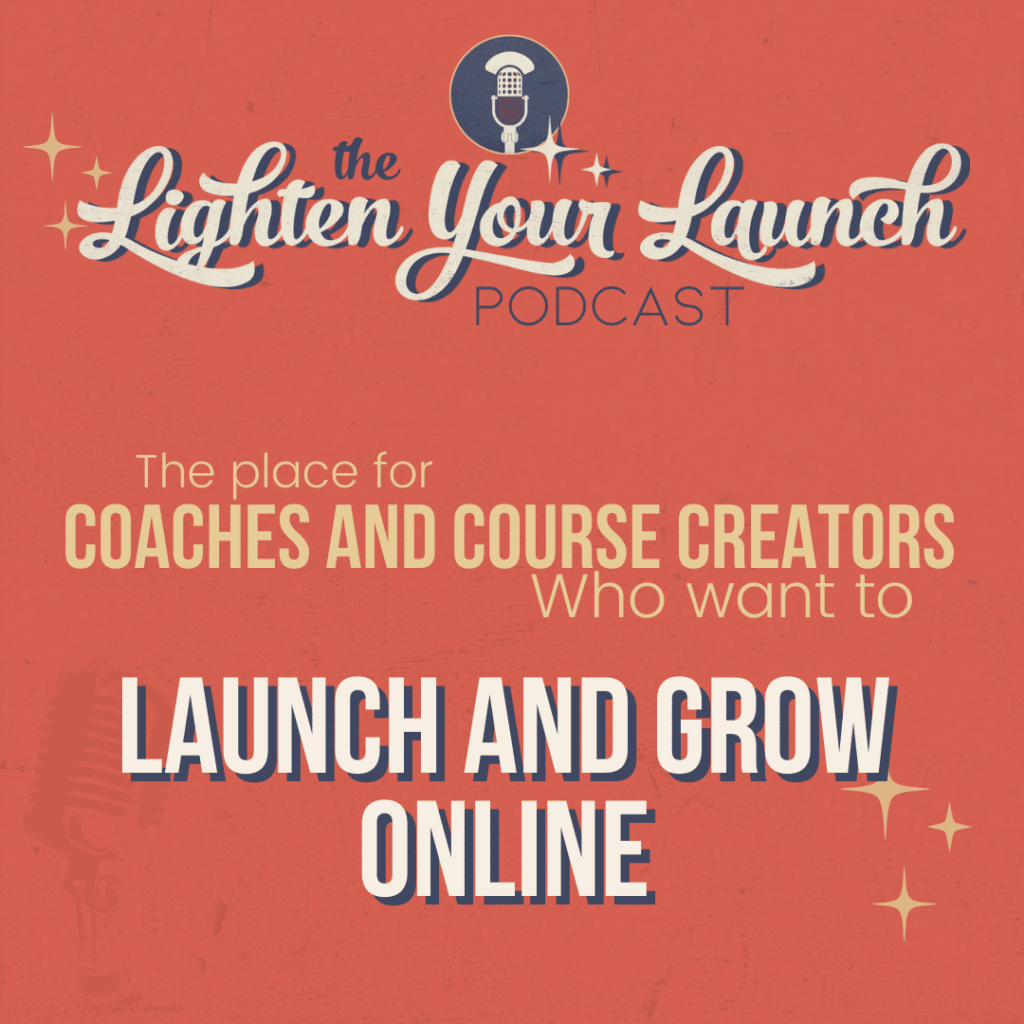
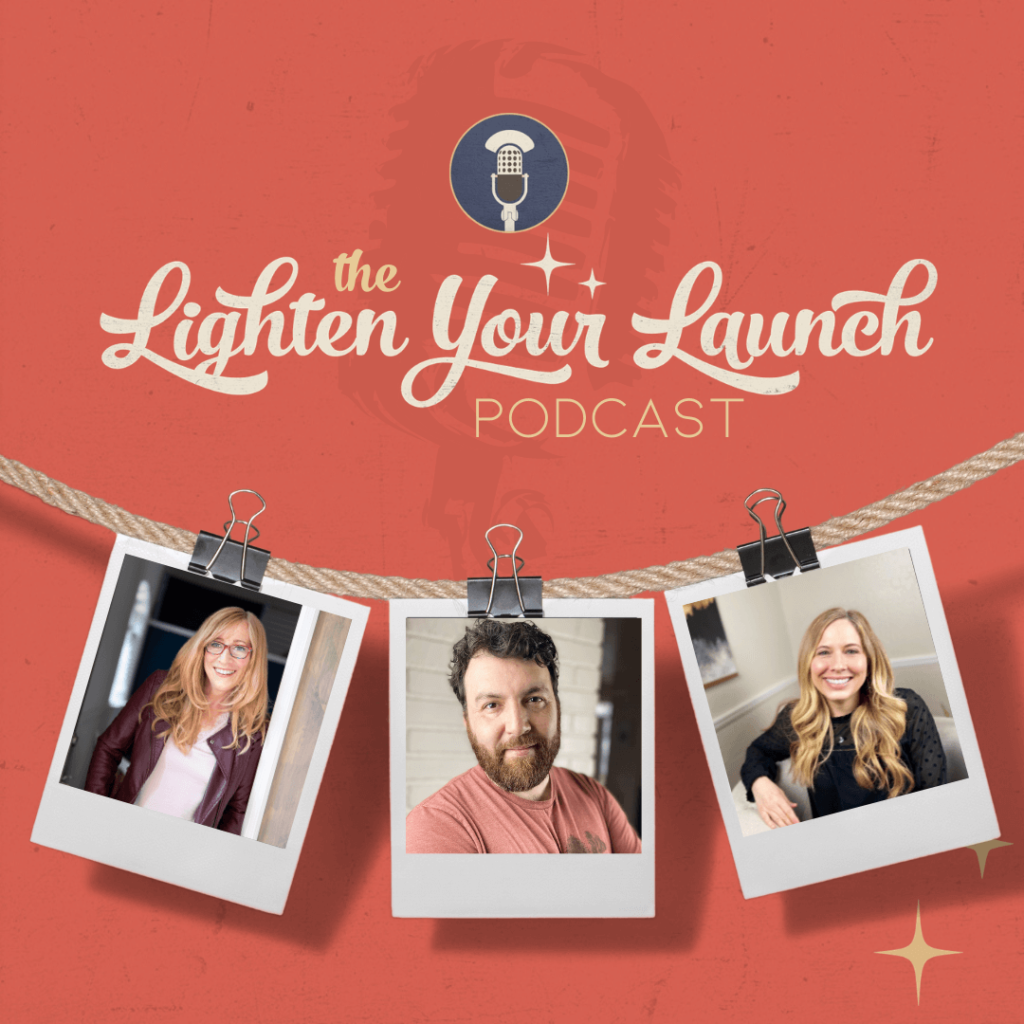


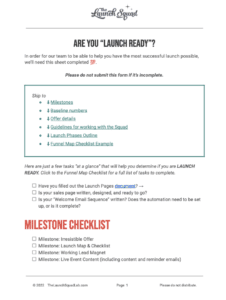
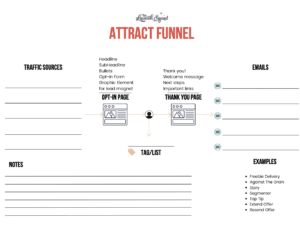
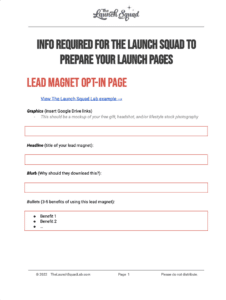
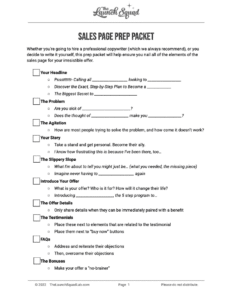
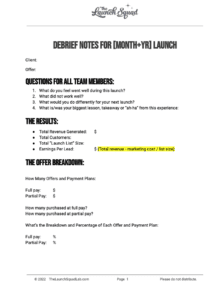
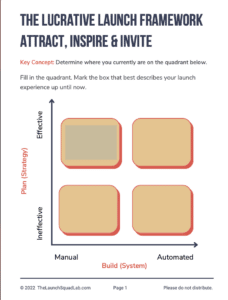
![Marketing Launch Calendar [TEMPLATE]](https://thelaunchsquadlab.com/wp-content/uploads/2023/05/Marketing-Launch-Calendar-TEMPLATE-300x260.png)
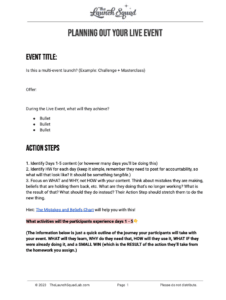
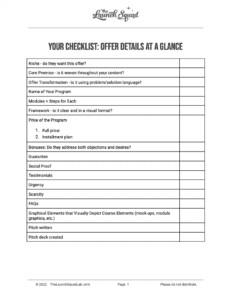
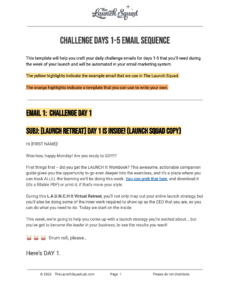
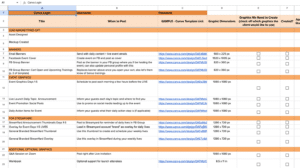
![[Updated] Email Templates for Launch](https://thelaunchsquadlab.com/wp-content/uploads/2023/05/Updated-Email-Templates-for-Launch-223x300.png)
![[REVISED] LS Pitch Script](https://thelaunchsquadlab.com/wp-content/uploads/2023/05/REVISED-LS-Pitch-Script-2023-226x300.png)

